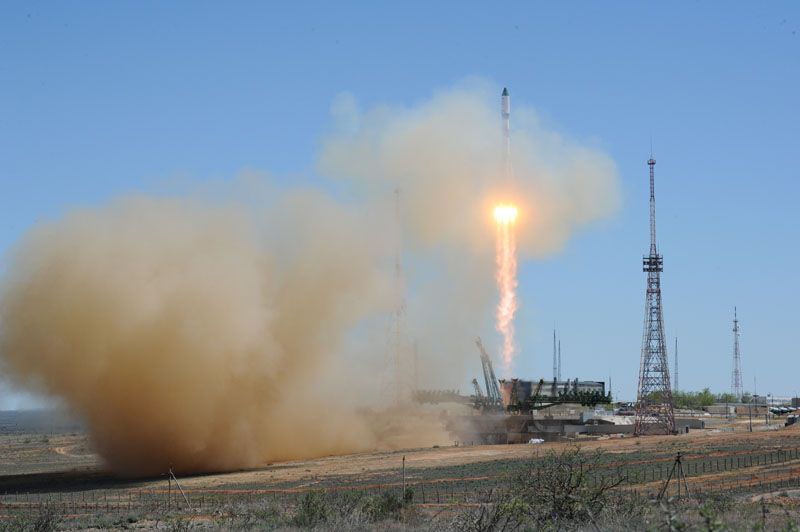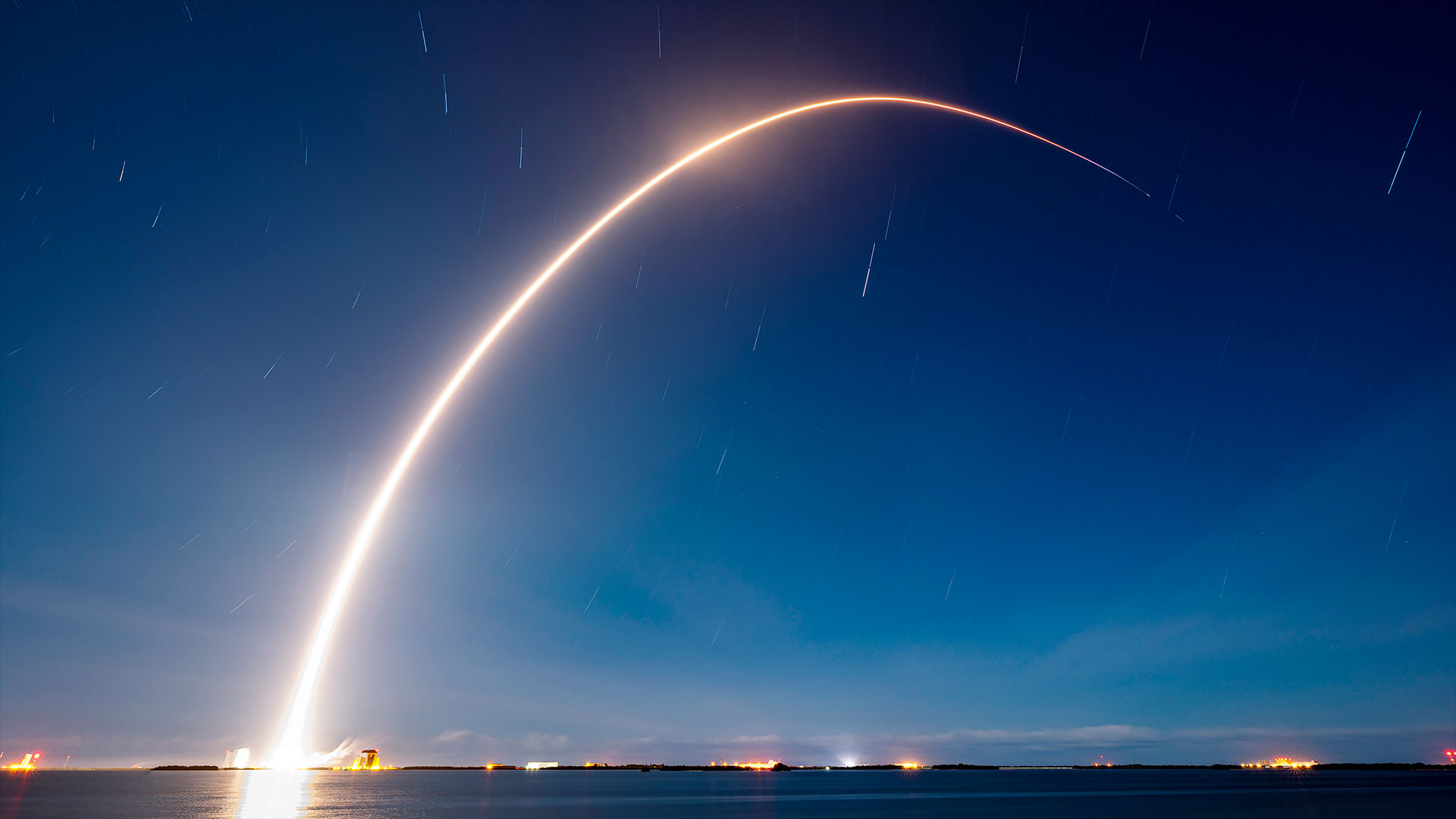Russian Space Cargo Ship Crash Blamed on Soyuz Rocket

A robotic Russian cargo spacecraft failed to reach the International Space Station as planned last month because of problems with its rocket, Russian space officials say.
The unmanned Progress 59 space freighter blasted off atop a Russian Soyuz rocket from Kazakhstan's Baikonur Cosmodrome on April 28, and was tasked with delivering about 3 tons of food, fuel and other supplies to the orbiting lab.
But the cargo craft never made it. Progress 59 began spinning wildly shortly after reaching orbit, and repeated attempts to gain control of the freighter failed. The vessel eventually burned up in Earth's atmosphere on May 7. [See photos of the doomed Progress 59 spacecraft]
Now, a preliminary investigation has revealed that Progress 59's issues stemmed from a too-early separation of the Soyuz's third stage, officials with Roscosmos, Russia's federal space agency, announced Tuesday (May 12). This glitch stranded the freighter about 12.4 miles (20 kilometers) below its target altitude, they added. (You can find the statement from Roscosmos, in Russian, here: http://www.roscosmos.ru/21481/.)
The Soyuz rocket launches both astronauts and cargo to the orbiting lab. As a result of the Progress 59 news, NASA, Roscosmos and their International Space Station (ISS) partners have decided to push back the next crewed Soyuz launch — which will bring three new space fliers up to the orbiting complex — by about two months, from May 26 to late July.
Therefore, the next manned Soyuz liftoff will take place after the next robotic Progress launch, which is scheduled for early July.
"The decision to delay the next crew launch until AFTER the next robot resupply mission was prudent, and takes advantage of the ISS program's flexibility, robustness and contingency reserves management strategy," veteran journalist James Oberg, who has written extensively about the Russian space program, told Space.com via email.
Breaking space news, the latest updates on rocket launches, skywatching events and more!
This launch delay had implications of its own: The partners decided to keep NASA astronaut Terry Virts, cosmonaut Anton Shkaplerov and the European Space Agency's Samantha Cristoforetti onboard until early June. (The trio was supposed to return to Earth on Wednesday, May 13.)
"This way, we minimize the amount of time only three crew[members] are on board, enabling us to continue the maximum level of science and research on board," NASA spokesman Dan Huot, of Johnson Space Center in Houston, told Space.com via email. (The station supports six crewmembers when fully staffed.)
The investigation into the Progress 59 mishap continues, and Roscosmos officials say a final report is expected on May 22. Whatever the conclusions of that report may be, lessons can already be drawn from the accident, Oberg said.
"This and recent similar failures highlight the foolishness of judging mission success reliability based on historical statistics. It's not just that each launch is a new roll of the dice — it's a first roll of NEW dice," he said. "The quality of fabrication and mission preparations reflect the CURRENT human and industrial context, and Russian space industry leaders have been so alarmed by those levels that they've repeatedly replaced the Russian Space Agency head with outsiders with nothing to show for it."
Follow Mike Wall on Twitter @michaeldwall and Google+. Follow us @Spacedotcom, Facebook or Google+. Originally published on Space.com.

Michael Wall is a Senior Space Writer with Space.com and joined the team in 2010. He primarily covers exoplanets, spaceflight and military space, but has been known to dabble in the space art beat. His book about the search for alien life, "Out There," was published on Nov. 13, 2018. Before becoming a science writer, Michael worked as a herpetologist and wildlife biologist. He has a Ph.D. in evolutionary biology from the University of Sydney, Australia, a bachelor's degree from the University of Arizona, and a graduate certificate in science writing from the University of California, Santa Cruz. To find out what his latest project is, you can follow Michael on Twitter.
